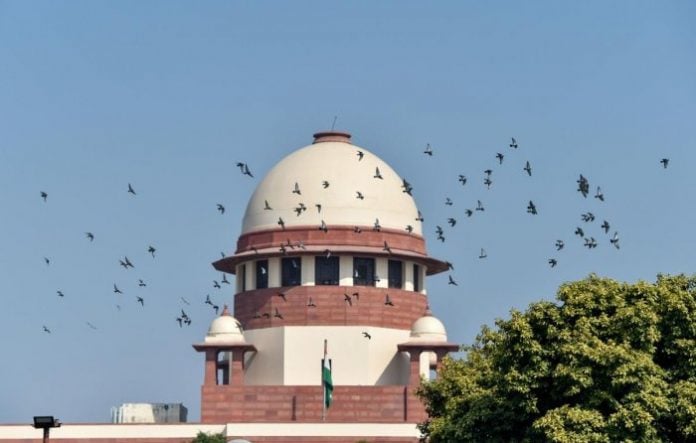The Supreme Court today refused to entertain a plea against the use of Hydroxychloroquinine and Azithromycin in treating critically ill COVID-19 patients with a direction to make a representation before the Central Government.
A three-judge bench comprising of Justice N V Ramana, Justice Sanjay Kishan Kaul and Justice BR Gavai was hearing a petition filed by an NGO named People for Better Treatment who has submitted that COVID-19 patients at present are receiving only symptomatic therapy because no specific drug has been invented till now for treating against the new SARS-CoV-2 viruses. Moreover the Ministry of Health and family welfare has issued “Revised Guidelines on Clinical Management of COVID-19”, that at present no specific antiviral therapy against COVID-19 exists.
However, the present treatment guidelines by Ministry of Health and Family Welfare have recommended to use an old anti-malarial drug, Hydroxychloroquine (HCQ) and a well-known broad- spectrum antibiotic, Azithromycin (AZM) in the most critically ill COVID-19 patients who are in ICU. The off-label use of HCQ and AZM in COVID-19 patients has been said to cause life threatening side effects particularly on the cardiovascular system by healthcare professionals.
The petitioner rebutted his submission by stating that “the American Heart Association (AHA), American College of Cardiology (ACC) and Heart Rhythm Society (HRS) in USA issued an extraordinary joint bulletin on 8th April, 2020 with stark warnings for doctors before and during the use of HCQ and AZM in COVID-19, especially for patients with existing cardiac conditions since these drugs have potential to trigger arrhythmia (abnormal heartbeat), heart failure and even death.”
The petitioner further pointed out that though the government has advised “off-label” treatment with HCQ and AZM for serious COVID-19 patients, they have failed to provide the important and specific precautionary measures that doctors should take before and during the use of these drugs.
-India Legal Bureau


